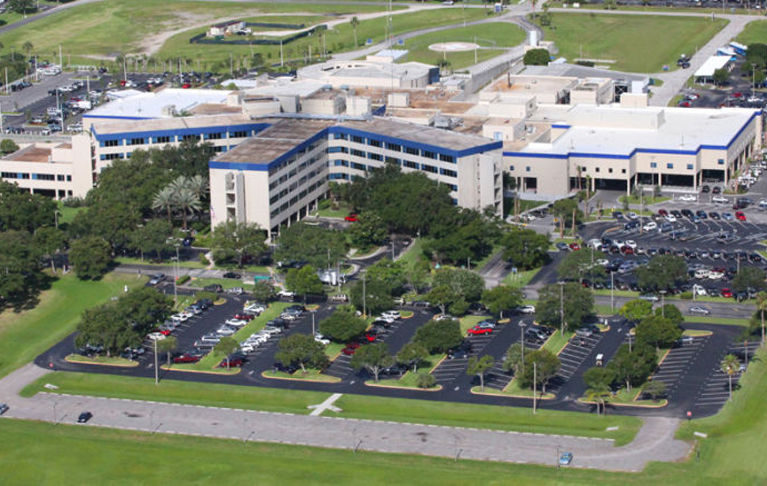
INDIAN RIVER COUNTY — After a seven-hour presentation by nationally recognized healthcare consultant Jamie Orlikoff on the challenges facing Indian River Medical Center, attendees joked with new hospital Board Chairman Wayne Hockmeyer that his position suddenly looked a lot more challenging.
Hockmeyer agreed and said he found the presentation – which challenged the hospital board to become “less harmonious and more effective and creative” – to be “very informative and well done.”
Amazingly, Orlikoff was so well-informed and entertaining that he kept the attention of the 40 people in the audience for the entire time.
He told hospital board members and administrators, along with Hospital District trustees, that the hospital board needs to take a more forceful leadership position to keep the hospital afloat in the rapidly changing world of healthcare.
For the hospital to survive in the increasingly competitive market, said Orlikoff, who is national advisor to the American Hospital Association and board vice chairman of the prestigious Virginia Mason Hospital in Seattle, Indian River Medical Center needs “to standardize protocols, reduce costs, increase quality and be more transparent.”
To explain what he meant by standardizing protocols, Orlikoff asked IRMC Chief Medical Officer Chuck Mackett how many different antibiotics hospital physicians prescribe for pneumonia.
Mackett responded that it took five years of work to reduce the number from 15 to seven because of “physician resistance.”
“It should be no more than three,” said the consultant. “The board could make a rule that it’s three.”
The hospital, with leadership from the board, also needs to reduce costs, Orlikoff said, mentioning other hospitals, CVS, Walmart, independent labs and imaging centers and even a new, low-cost heart center in the Cayman Islands, as part of the growing competition.
A hip replacement at a U.S. hospital varies in cost from $11,500 to $123,000, he said, and the top price does not guarantee an outcome better than the low price.
“We have to change,” he urged his audience.
In the old days, he continued, hospitals and doctors made money when they were expensive and opaque because insurance covered so much.
But, now, patients have “a lot more skin in the game” because they often pay for all or part of their insurance along with deductibles, co-pays and self-pays, and they want to know that they are paying reasonable prices for excellent care.
“Employer-backed care drives inefficiency,” he said. “The final arbiter of costs is becoming the hard-pressed consumer, who will back off services and look for cheaper alternatives.”
Medicare stats posted on the internet and Medicare’s financial reward-and-punishment system are helping patients become better informed about quality, he told his audience, adding that often-touted awards were of less significance than bedside manner.
What patient-consumers want is simplified price transparency based on standardization, not to be hurt and to be made better, and it is up to the hospital board to lead the way, bringing greater transparency, standardization, safety and quality to Indian River Medical Center, said Orlikoff.
He concluded by urging hospital board members to ask tough questions and take decisive action: “There is no joy quite so profound as being totally clueless,” he said. “If everyone is happy, you’re not doing a damn thing.”



